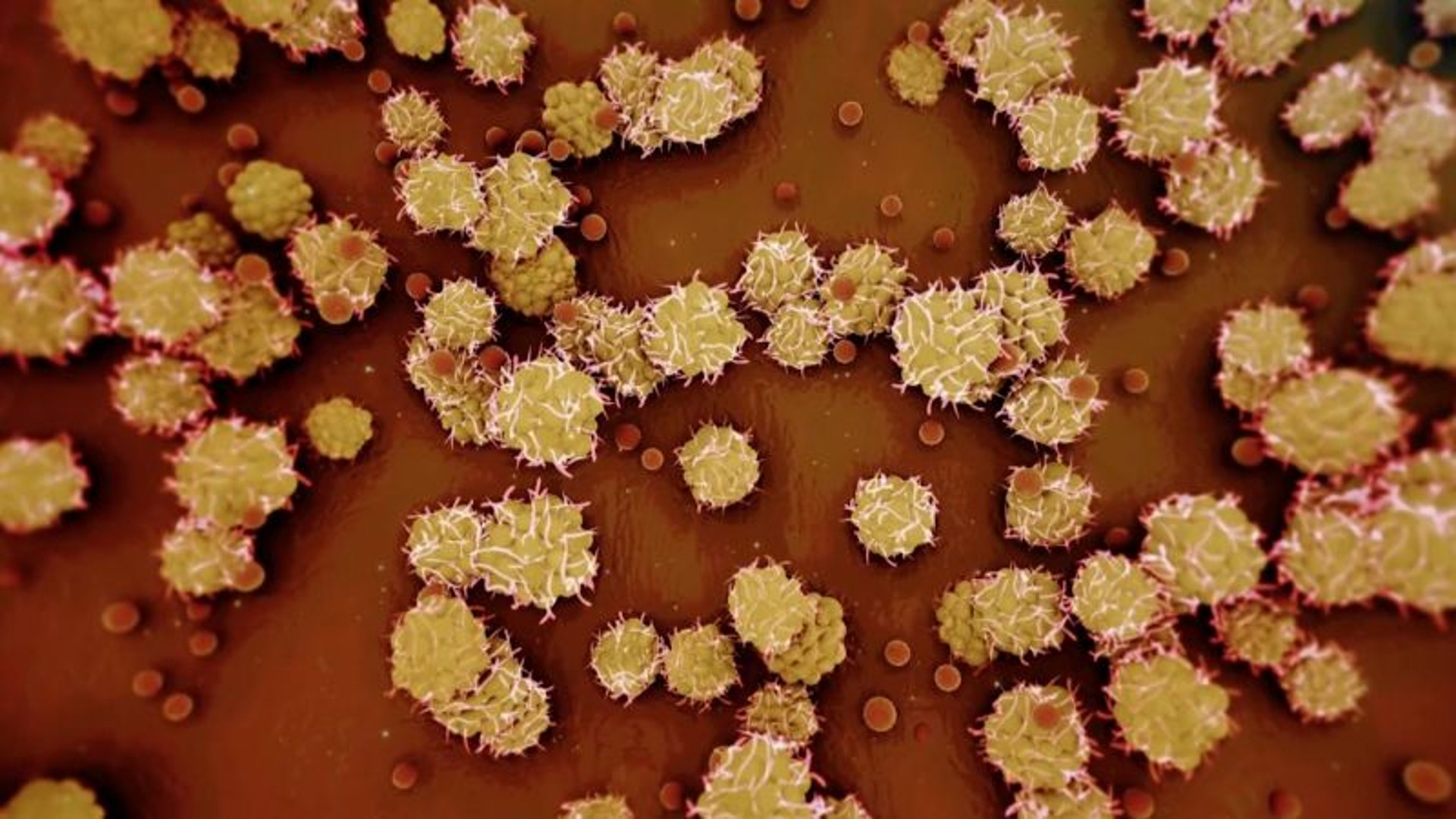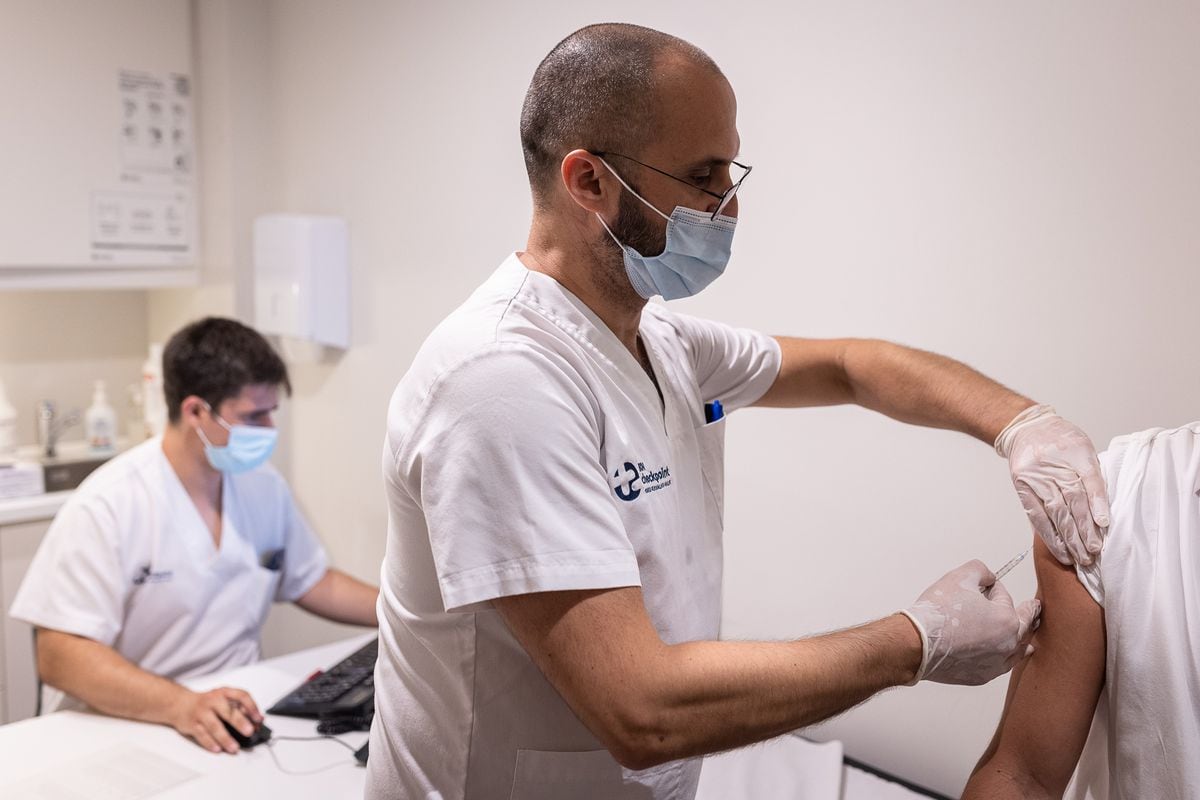This is what gay men think of handling monkeypox 3:35
(CNN) --
One feature of the current monkeypox outbreak is that most cases have been linked to sexual activity.
That has generated some debate about whether it should be described as a sexually transmitted disease.
Limit the number of sexual partners and other ways to avoid monkeypox, according to the CDC
"Many infectious diseases, although we classify them under one form of transmission, have multiple mechanisms of spreading," explained Dr. Amesh Adalja, senior scholar at the Johns Hopkins Center for Health Security at the Johns Hopkins Bloomberg School of Public Health.
Monkeypox can be sexually transmitted, he noted, but it clearly spreads through close nonsexual contact as well.
"I don't think we have enough information at this point to fully classify it. I think there are some hints, but more research is needed," Adalja added.
"There are other infections –– for example, syphilis–– that are spread through other routes besides sexual transmission," he said.
"Zika virus is a mosquito-borne disease, but it can also be spread sexually. The question for me is more about making sure we have a clear understanding of what's going on from a physiological standpoint before making that kind of claim," complete.
Does a lower dose of monkeypox vaccine work?
1:52
Some experts argue that considering smallpox as a sexually transmitted disease (STD) could be, in addition to being misleading, potentially harmful to public health.
advertising
"The harm in suggesting that monkeypox is an STD is that people who don't have sex immediately think, 'Fine, I'm not going to get it,'" said Dr. Saju Mathew, a primary care physician and public health specialist in Atlanta.
Monkeypox: who can be infected?
"What a lot of people will think is that it's the same as herpes, gonorrhea or chlamydia, in that you have to have sex to get it. That's not true. That's why it's dangerous to suggest that it's transmitted exclusively through sex. That is misinformation," he warned.
Monkeypox "is spread through sex in most cases. But it's not exclusively transmitted through intimate contact. It can also be spread through non-intimate contact," she added.
David Harvey, executive director of the National Coalition of STD Directors, said he and his colleagues refer to monkeypox as a "sexually associated" infection at the moment.
Some lab workers refuse to draw blood from potential monkeypox patients, raising stigma concerns
"With the data that is available at the moment, we know that the main mode of transmission is sexual association. It is contact of a sexual nature. Technically, a sexually transmitted infection is defined as an exchange of genital fluid that has a virus or a bacterium related to sexual transmission," Harvey said.
"We need the science to definitively show that this is an infection that can be transmitted through semen or genital fluids. And the science on this isn't quite clear yet, which is why we call it sexually associated."
How is an STD defined?
STDs, also known as sexually transmitted infections or STIs, are infections that are spread from one person to another through sexual contact, such as vaginal, oral, or anal sex.
In some cases, these infections can also spread through intimate skin-to-skin contact, such as herpes and human papillomavirus (HPV).
A man in Spain recounts how he lived with monkeypox 4:09
The long history of STDs goes back to archaic times.
Some studies suggest that the migrations of modern human ancestors may be linked to HPV, some types of herpes, and other sexually transmitted diseases.
Now, in contemporary times, a study from Nigeria was one of the first recent reports describing possible sexual transmission of monkeypox.
That country suffered a large outbreak of monkeypox in humans in September 2017, and the case study was published in the journal
PLOS One
in 2019. Previously, it was thought that person-to-person transmission occurred mainly through transmission. saliva or respiratory droplets, or direct contact with pus or crust from lesions.
"There is no formal process for labeling an infection as an STI or STD," Kristen Nordlund, a spokeswoman for the Centers for Disease Control and Prevention (CDC), wrote in an email to CNN on Monday. .
"Experts generally determine, scientifically, whether a pathogen can be transmitted through sex, in which case it is called 'sexually transmitted.' And the frequency with which an infection is considered an STI relates to the proportion of transmissions per sex versus some other route. But there is no 'rubric' that is used to guide this determination," he added.
Doctors urge looking for monkeypox cases beyond men who have sex with men
Nordlund noted that monkeypox can be more accurately described as "sexually transmitted," since sex is one of the ways the virus spreads.
But she's not the only one, he warned.
"Sex is a human behavior. If there were no stigma attached to sexually transmitted infections, there would be less concern about calling monkeypox an STI because of the implications for those most affected," Nordlund wrote.
"It's also important to consider this question globally. And keep in mind that the implications of this label vary depending on where you are in the world. For example, there are countries where homosexuality is punishable by imprisonment or even death. ... Considering monkeypox an STI or an STD could have far-reaching consequences in these countries," he added.
The monkeypox virus can be spread during skin-to-skin contact, direct contact with a rash or scabs from an infected person, or direct contact with their respiratory secretions.
Scientists are still investigating whether monkeypox can be spread through semen or vaginal fluids.
Should I worry about monkeypox?
Our medical analyst explains the risks of this disease
Although the risk is low, there is also a chance that monkeypox could spread through items or surfaces such as clothing, bedding, or towels used by someone who is infected.
Mathew noted that the skin lesions caused by monkeypox could actually be mistaken for a common STD like herpes or syphilis.
And he added that, in some cases, a person with monkeypox could also have another infection with common sexually transmitted diseases.
When treating his first monkeypox patient in Atlanta, Mathew immediately noticed that the person had the typical facial lesions of the disease.
But the 25-year-old man also had pain in his buttocks, Mathew said.
"He ended up getting another STD besides monkeypox," which was herpes.
Mathew added that about 25% of monkeypox patients in the US have had concurrent STD infections.
What symptoms does monkeypox cause, how is it spread and what do we know about it?
Harvey explained that "when monkeypox is diagnosed, you should be tested for monkeypox, but other STI tests should also be done to make sure they are ruled out or diagnosed."
"We have the highest rates of sexually transmitted infections in the United States, basically in the entire history of the nation. So it's not surprising that we're diagnosing more STIs in the context of the current outbreak of monkeypox," he said. .
"Anecdotally, we've been told by some of our clinics across the country that they're seeing 15% to 40% rates of co-infection with other STIs. But we don't have national data on that at this time."
CDC clinical guidance tells health care providers: "It is important to thoroughly evaluate patients with genital or perianal ulcers for STIs. However, co-infections with monkeypox and STIs and the presence of a STI does not rule out monkeypox."
Fighting the stigma of monkeypox
Any attempt to label monkeypox as a sexually transmitted infection "will only add to the stigma and ignore other means of transmission," wrote Jason Farley, a nurse scientist and inaugural chair of Leadership and Innovation at the Johns Hopkins University School of Nursing. , in an email to CNN.
How do I know if I have monkeypox?
1:38
"The virus is spreading between close contacts and sexual networks within communities of gay, bisexual and other men who have sex with men. We have also seen infections, albeit limited so far, within households with cases in men, women and children. In the latter case, transmission is likely to be through skin-to-skin contact between parents and children, but environmental contamination resulting in transmission is also possible," Farley wrote.
"If you look at how the AIDS response developed, for example, it took almost a decade to get the heterosexual community to pay attention and realize that HIV was not a disease of gay people," he wrote.
"We cannot allow the same inaccurate information to guide our public health practice today," she added.
Monkeypox is advancing faster than data on this disease, hampering mitigation efforts
Harvey of the National Coalition of STD Directors said stigma is something STD clinics struggle with on a daily basis.
In that sense, he is concerned that the monkeypox outbreak is stigmatized in the context that it is a sexually associated disease.
"We don't want people to dismiss this as a sexually transmitted infection, but on some level this creates the stigma of sexually transmitted infections," he said.
"So for those of us who work in this field full time and deal with these issues every day, we want to do everything we can to break down the stigma. Especially around sexually transmitted infections, so that we make sure we that people get tested and treated without shame or fear," he added.
Ultimately, whether or not monkeypox is designated an STD, Harvey said the response to the outbreak is putting pressure on STD clinics.
"STI and sexual health clinics across the country are shouldering the bulk of the response to testing and treatment needs right now. And they don't have additional funding to handle the influx of patients. We're also seeing that testing and treatment for other sexually transmitted infections have been affected, Harvey said.
Monkeypox vs.
covid-19: how the two health emergencies compare
A survey of more than 80 clinics, conducted by the National Coalition of STD Directors, between July 26 and 29 found that 63% have received referrals from other health care providers for suspected cases of monkeypox.
Also that 52% have served people who were turned away by other providers, and 40% have incurred unforeseen expenses for supplies or personnel due to the monkeypox response.
In addition, 65% of clinics have had to modify workflows to deal with the monkeypox outbreak, such as changing from immediate care to appointment only, and 22% have had to reduce symptomatic or asymptomatic screening from other STIs to prioritize monkeypox services.
"There is a lack of additional funding, there is a lack of federal funding, that can directly support these programs," Harvey said.
"These programs need support for supplies, tests, to pay for tests, they need additional staff hours and other types of capacity to help support the response to this outbreak," she insisted.
monkey pox






